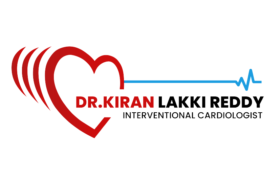
Mechanical circulatory support (MCS) refers to the use of mechanical devices to assist or replace the pumping function of the heart in individuals with severe heart failure or other cardiac conditions. These devices are designed to improve blood flow, alleviate symptoms, and provide support while patients await heart transplantation or recover from cardiac surgery. Here are some common types of mechanical circulatory support devices:
Ventricular Assist Devices (VADs): VADs are the most widely used mechanical circulatory support devices. They are implanted surgically and help the weakened heart pump blood. VADs can be classified into two types:
- Left Ventricular Assist Devices (LVADs): These devices assist the left ventricle in pumping oxygenated blood to the body.
- BiVentricular Assist Devices (BiVADs): BiVADs support both the left and right ventricles when both sides of the heart are severely affected.
Intra-aortic Balloon Pump (IABP): An IABP is a temporary mechanical device inserted through the femoral artery into the aorta. It consists of a balloon that inflates and deflates in synchrony with the heartbeat. The balloon inflation assists in increasing coronary blood flow and reducing the heart’s workload.
Extracorporeal Membrane Oxygenation (ECMO): ECMO is a temporary life support system that provides both cardiac and respiratory support. It involves the use of a machine that pumps and oxygenates a patient’s blood outside the body, allowing the heart and lungs to rest and heal.
Total Artificial Heart (TAH): TAH is a device that replaces both ventricles of the native heart. It is used as a bridge to transplantation for patients with end-stage heart failure when suitable donor hearts are not immediately available.
Mechanical circulatory support devices can significantly improve a patient’s quality of life, relieve symptoms, and provide time for further interventions or transplantation. They are typically managed and monitored closely by a multidisciplinary team of healthcare professionals, including cardiologists, cardiac surgeons, and specialized nurses.
However, it’s important to note that the use of mechanical circulatory support devices requires careful patient selection, surgical expertise, and ongoing management. Each patient’s suitability for these devices depends on various factors, such as the severity of heart failure, overall health, and the presence of other medical conditions.
The decision to use mechanical circulatory support is individualized and made in collaboration between the healthcare team and the patient, considering the potential benefits, risks, and long-term implications.
Get In Touch
- +91 90149 44654
- lakki.reddy.63@gmail.com
- CANES - Cardio & Neuro Clinic, 3rd Floor, Tapasavi Commercial Complex, Hi-tension Rd, Kondapur, Hyderabad,
Copyright ©2023 All rights Reserved to Drkiran Lakki Reddy ll Develop & Design by Branding Nuts
